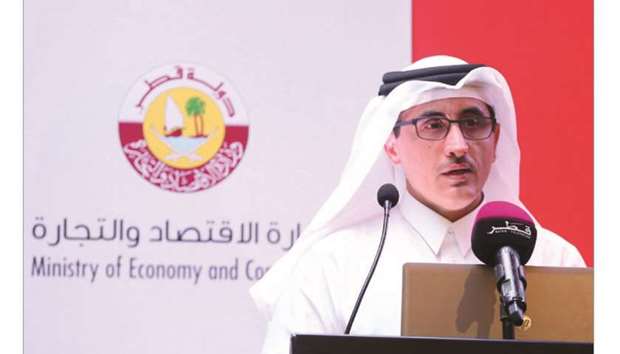The new foreign direct investment (FDI) law, which is expected to be in place by the end of this year, and the economic zones, is expected to make Qatar a perfect hub for trade/re-exports, according to a top government official.
Although, Qatar is opening up almost all the economic sectors through 100% FDI; banking and insurance, which are critical to the country’s economy, will however require the Prime Minister’s approval, Abdulbasit Talib al-Ajji, Director of the Business Development and Investment Promotion Department at the Ministry of Economy and Commerce (MEC), told a roundtable.
Addressing ‘Qatar’s business climate and new FDI law’, organised by the MEC in association with The Business Year, to discuss the key incentives and advantages that Qatar is offering to investors on the organisational level; he highlighted Qatar’s economic growth and efforts to enhance co-ordination and co-operation among government agencies in a bid to provide an attractive investment environment to investors.
Reasoning for Qatar being touted as re-exports hub; he said the corporate sector could benefit from Qatar’s existing direct shipping lines and the prospective ones to neighbouring countries as they could offer huge potential.
“We are getting to hear from the companies that Qatar be used as a hub for re-exports,” he said, adding Doha could help target Iran, Iraq, Pakistan, Turkey and other neighbouring countries with a combined consumer base of more than 400mn.
In a bid to streamline foreign investments, the MEC had established an investor services centre that brings together qualified national cadres to support investors and process investment-related procedures in a professional manner.
On May 27, 2018, MEC announced a draft law that will allow foreign investors to own 100% of equity in all sectors, which is pending legislative approval.
“It is now with the His Highness Amir’s’ office. We expect it to be approved soon,” al-Ajji said, adding that it is expected before the end of this year.
The update of the legislative framework for FDI is already having an impact on the dynamism of the country’s economy and has set Qatar in line with the best regional and global practices in this field.
The new law, which is an amendment to Law No 13 of 2000, is intended at attracting foreign capital inflows; accelerating economic development and commercial activities; and achieving economic diversification, in accordance with the Qatar National Vision 2030. However, banking and insurance would need approval from the Prime Minister due to the sensitive nature of the sectors, he said, adding the new FDI policy would also give flexibility to the ownership structure.
The previous version allows foreign investors to invest in all sectors up to a maximum of 49% in the equity of Qatari limited liability companies. Although the new law allows 100% FDI, it however not exclude local stake because at some point of time, these firms would require funding, he said.
The MEC official highlighted legislatives incentives in a bid to attract foreign investments, particularly exemptions of invested foreign capital from income tax for up to ten years for specific investment projects as well as abolishing taxes and customs duties on imported equipment and raw materials. Other incentives include the freedom to repatriate profits and to transfer ownership.
He said under the new law, the companies with 100% FDI will be treated like any other local entity with its appurtenant benefits.
Kamal Naji, chief project officer, Qatar Financial Center Authority said the QFC’s mandate continues to focus on attracting FDI in line with QNV 2030.
“Thanks to the QFC’s unique ecosystem, we will continue to provide an attractive platform for firms to grow, while stimulating market growth,” he added.

Talib al-Ajji outlining the salient features of the new FDI law which is expected to come into force by the year-end.
